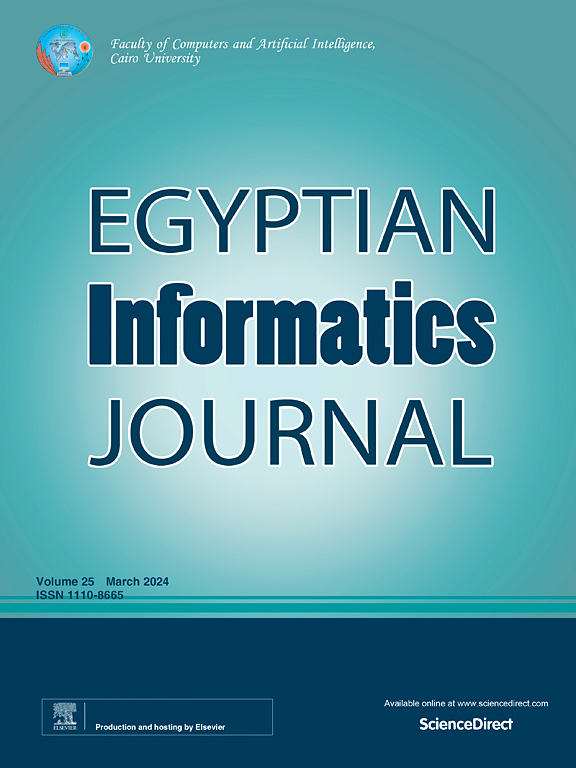Enhancing security in social computing systems through knowledge learning techniques
IF 4.3
3区 计算机科学
Q1 COMPUTER SCIENCE, ARTIFICIAL INTELLIGENCE
引用次数: 0
Abstract
Social computing systems (SCS) integrate social behaviour with computational hardware to enable conversations among technologies and individuals. To protect the integrity of behavioural integration from illegal device communications, it is essential to ensure that security is maintained inside SCS. This study aims to provide a Coherent Authorization and Authentication Technique (CA2T) specifically designed to ensure the safety of SCS connections. CA2T uses various user credentials to approve interactions while guaranteeing that authentication is not replicated. Computed and behavioural data authentications are separated through knowledge-based learning to reduce the amount of security overheads. Credential verification that is adaptable and based on different calculation needs is the initial step in the device authorization process. After that, end-to-end authentication uses a lightweight signature based on two factors for verifying interactions between devices. The experimental findings show that when compared to the leading baseline approach, NTSC, CA2T reduces false positives by 9.48 %, computational overhead by 12.28 %, authentication time by 11.38 %, and failure rates by 11.48 %. With these improvements CA2T has emerged as much more effective than previous security frameworks for protecting SCS environments; it remains scalable, has minimal latency, and can adapt to new environments.
通过知识学习技术提高社会计算系统的安全性
社会计算系统(SCS)将社会行为与计算硬件相结合,使技术和个人之间的对话成为可能。为了保护行为整合的完整性,防止非法设备通信,必须确保系统内部的安全。本研究旨在提供一种专门设计用于确保SCS连接安全的连贯授权和认证技术(CA2T)。CA2T使用各种用户凭据来批准交互,同时保证身份验证不会被复制。通过基于知识的学习将计算数据认证和行为数据认证分离,以减少安全开销。根据不同的计算需求进行适应性强的凭证验证是设备授权过程的第一步。之后,端到端身份验证使用基于两个因素的轻量级签名来验证设备之间的交互。实验结果表明,与领先的基线方法相比,NTSC - CA2T方法的误报率降低了9.48%,计算开销降低了12.28%,认证时间降低了11.38%,故障率降低了11.48%。有了这些改进,CA2T比以前保护SCS环境的安全框架更有效;它保持可伸缩性,具有最小的延迟,并且可以适应新的环境。
本文章由计算机程序翻译,如有差异,请以英文原文为准。
求助全文
约1分钟内获得全文
求助全文
来源期刊

Egyptian Informatics Journal
Decision Sciences-Management Science and Operations Research
CiteScore
11.10
自引率
1.90%
发文量
59
审稿时长
110 days
期刊介绍:
The Egyptian Informatics Journal is published by the Faculty of Computers and Artificial Intelligence, Cairo University. This Journal provides a forum for the state-of-the-art research and development in the fields of computing, including computer sciences, information technologies, information systems, operations research and decision support. Innovative and not-previously-published work in subjects covered by the Journal is encouraged to be submitted, whether from academic, research or commercial sources.
 求助内容:
求助内容: 应助结果提醒方式:
应助结果提醒方式:


